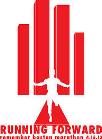Race and Ethnicity
Remember Boston—Running Forward
Making use of a horrific event to fuel positive outcomes
Posted July 15, 2013

It’s now three months after the Boston Marathon and its horrific ending. For some people, other major events have superseded the story in importance. Yet the recent arraignment of the remaining bombing suspect stirs things again. The stories—of how people coped and the meaning of the race and its aftermath for them —remain engaging and informative.
In this blog, I share a story about “Walter,” who used the Boston experience to fuel his drive to participate next year. If you have interest in the Boston event—or human experience in coping—I also recommend the July 2013 issue of Runner’s World, permeated with stories about the event and its aftermath.
To recap this series on the effects of the Boston Marathon bombings on runners: In Part I, we met “Fran,” traumatized at the Marathon but now regaining a sense of capacity. “Jim”, in Part II, was experiencing post-traumatic symptoms but with new insight, may be able to move through the aftermath. While appreciating the fragility of life, he also was able to recognize the rarity of events such as the one he lived through.
And now, Walter. On April 15, Walter was in Boston as a spectator. He was there to support a friend running the marathon. The friend acted heroically—before the bombings. The friend—I’ll call him Mike—experienced severe knee pain as he neared the end of the race. He was reduced to walking rather than running toward the finish line. He saw a woman ahead of him collapse, totally exhausted. Unable to coax her up, he picked her up and carried her to even closer to the finish line. Then he set her down so that they could both run across the finish line—which they did.
Walter and Mike met up fairly easily and then went to find the physical therapy building, to address Mike’s pain. By the time they got there, the building—inexplicably—was locked down. Having turned a corner, they hadn’t heard the bomb blasts and weren’t aware that the area had become an emergency zone. Later, they realized that one of the bomb blasts had exploded exactly where Mike picked up the exhausted runner.
Neither Walter nor Mike was in harm’s way, but they witnessed much of the dramatic human response. Mostly, Walter was impressed with the effectiveness of Boston police and medical services and touched by the caring generosity of Bostonians. Local residents invited runners into their homes, providing blankets, food, and access to TV to follow the events. In some ways most important of all, people offered land lines so that runners could contact relatives and friends while cell phone towers were shut down, to let them know they were safe.
The Toronto Marathon is one of the races whose outcome can be used as a time marker to qualify for the Boston Marathon. The specific time needed to qualify for Boston, known as a “BQ” (Boston qualifying time), is set differently depending on age and sex. A former runner, Walter had returned to running a couple of years ago. The Toronto Marathon—three weeks after Boston—was Walter’s first marathon in 35 years.
Part of a contingent of 20 from a small Canadian town, Walter stopped by our Psyching Team booth at the Expo the day before the race. He shared his story of a few weeks prior; he was also looking for advice and suggestions. The events in Boston, he said, merely made him more determined to run Boston next year. Our Psyching Team member gave him practical advice about pacing himself through the race.
On the race course the next day, Walter and the Team member spotted each other. The Psyching Team member, a “Psych-on-Bike,” was looping through a section of the course on his bicycle, assisting runners. “We were close enough to extend our arms to touch for a high five. His form was good and he was running strong.”
After the race, Walter sent an email note to our Team member (quoted here with permission): “I'm on top of the world with excitement of reaching my goal. A very big reason for achieving this milestone was meeting you and all your wonderful comments and advice you so kindly shared with me.
“I ran my own race, enjoyed the social excitement of the first 16K. The next 16K I concentrated on form, posture, breathing, foot strike, cadence and SMILING. The last 10K was when the marathon really started.”
(The Psyching Team often suggests the tactic of breaking the 26 miles/42 kilometers into three more manageable sections, as Walter did: 10 miles/16 kilometers; another 10/16; and a final 6 miles/10K).
“I [had to dig] deep to hold my pace. My training was well short of what was required to continue at that pace. I kept moving. I reflected back from the start of the race and out loud said over and over how well I am doing, how close I am to my goal, how tired everyone else is at this point and all I have to do is keep going. And I did, kilometer by kilometer. It was here you really helped me. I kept digging and more energy came, from where I don't know. So I stayed focused and before I knew it I was .2k from the finish line and 3 minutes under my BQ. Unbelievable!!”
You are welcome to contact me directly at any time through my website, www.theperformingedge.co




